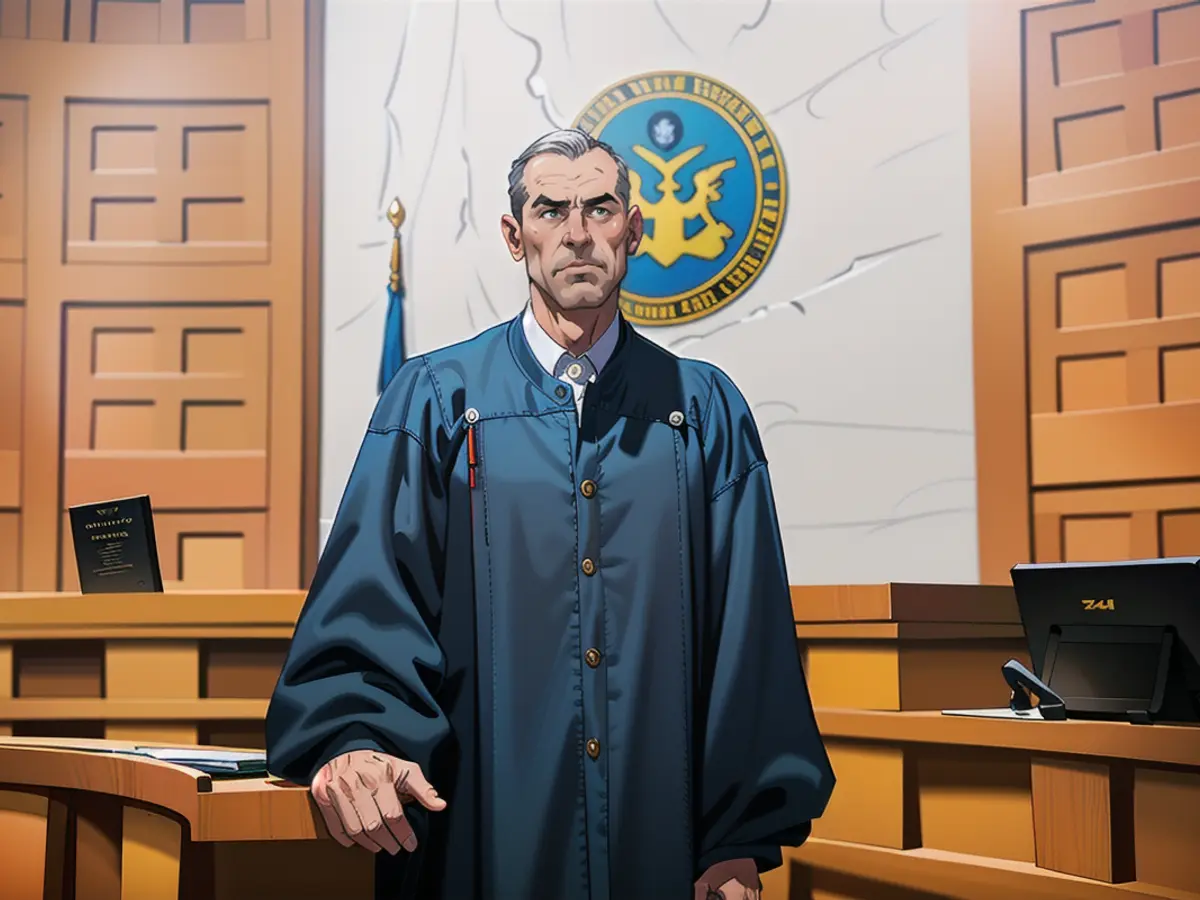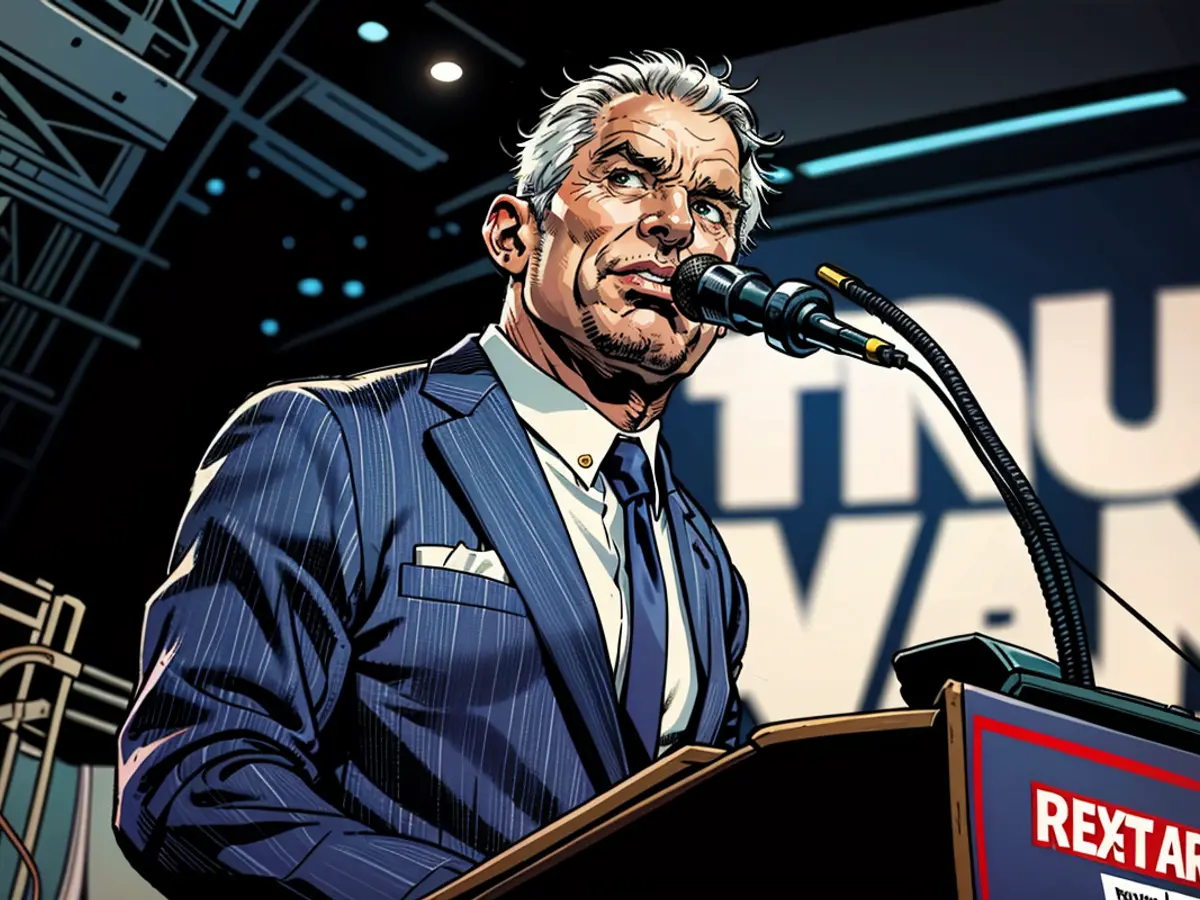Opinions indicate that Trump's classified documents case might've had disparate outcomes if handled in DC.
In the end, the former president was charged in Florida, a move that has proven significant, as it has shown stark contrasts in the approaches taken by DC judges compared to the one overseeing the criminal case in Florida.
These differences were highlighted recently as opinions from two DC federal judges were unsealed, revealing how quickly and harshly the case might have progressed had it remained in Washington. Additionally, the federal judge currently handling Trump’s case in Florida has been brought into another debate over a potential gag order for the former president, an issue that had already been discussed by judges in DC.
The recently uncovered opinions from DC District Court Chief Judge James "Jeb" Boasberg and his predecessor, Judge Beryl Howell, exhibit a significant skepticism concerning attorney-client privilege and grand jury secrecy arguments. These issues have kept Judge Aileen Cannon occupied for months in Florida.
The special counsel, Jack Smith, indicted Trump for mishandling classified documents in September 2022. However, the case has stalled due to Cannon's hesitation to rule on various matters and is unlikely to go to trial before the upcoming November elections.
Now, Trump is being asked to respond to prosecutors' request limiting his ability to comment about the law enforcement and witnesses involved in the documents case. He has repeatedly claimed the FBI was preparing to use lethal force during the search of Mar-a-Lago, which prosecutors believe is misleading.
A federal judge in DC, Tanya Chutkan, who's managing a separate criminal case against the former president related to the 2020 election, had placed a gag order on Trump in the past. This prevented him from commenting about witnesses and other individuals in that case in a manner that could intimidate them or hinder the proceedings.
Cannon has yet to address the prosecutors' request to restrict Trump's speech.
Inquiry shifted to Miami after DC
The majority of evidence against Trump in the documents case was gathered through a DC federal grand jury that continued to hear testimonies for months after the FBI recovered over 300 classified documents from Trump's Mar-a-Lago residence in August 2022. However, the Justice Department transferred the investigation to a Miami grand jury in its final weeks before filing charges in Florida's federal court. This move was made because most of Trump's allegedly criminal activities took place at Mar-a-Lago in the Florida town of Palm Beach.
Prosecutors have been guarded about sharing the reasons they opted to move the investigation to Florida. When questioned by Cannon about the decision-making process, prosecutor David Harbach from the special counsel's office stated, "I can say that the investigation that was ongoing before the DC grand jury had – had adequate nexus to continue in Washington. I'm not prepared to comment on the date on which a decision to charge in Florida was made or what the internal deliberations were on that subject."
Trump and his legal team have attempted to exploit this relocation to Florida, hoping that Cannon might view the matter differently than Howell and Boasberg and re-evaluate the prosecutors' decisions.
Currently, Cannon is being asked to reconsider crucial aspects of the case that Howell and Boasberg have already ruled on, including the ability for prosecutors to secure testimony from Evan Corcoran, a former attorney of Trump's. The defense team is attempting to exclude Corcoran's testimony from the prosecutors' case, a strategy that might have been more challenging if the case had remained in DC.
Last year, Howell ordered Corcoran to testify before the grand jury, citing that conversations between Trump and his attorney were not privileged because they served to further crimes. Corcoran's testimony provided essential parts of the indictment against Trump and included detailed accounts of Trump's attempts to conceal the classified materials from federal officials.
Bradley Moss, a DC-based lawyer with extensive national security knowledge, insisted that Howell's ruling created a "clear road map" for Cannon's consideration of the attorney-client privilege issues.

Still, Cannon has not scheduled a hearing to discuss the topic, causing disagreements between the parties since February. "That she continues to sit on the matter is inexcusable," Moss said.
Unlike the DC judges, Cannon has been more reluctant to make decisions beforehand and has granted significant leeway for defendants' claims to be heard over multiple rounds in court while also entertaining claims viewed as marginal by many legal scholars.
The DC judges' perspective on Trump's actions
Howell, in a ruling that allowed investigators to access details of Trump's conversations with his attorney, which would have been protected by privilege, stated that there was "strong evidence" Trump "intended" to hide the classified documents. Additionally, Howell agreed that there was evidence of potentially criminal obstructive behavior by Trump, which is central to the current criminal case.
The workout required Howell to grapple with several of the same Trump legal defenses that her legal team is currently presenting to Judge Cannon.
For instance, she emphasized that even if Trump, as a former president, had the power to retain the classified materials, he was obligated by a relevant rule to "protect" the information, and in this instance, the "confidential documents were stored in inappropriate and unsecured locations," she remarked.
A comparable argument Trump made in his original court hearing left Cannon perplexed. While she eventually dismissed Trump's motion to disregard the case on the grounds that he could have kept them after his presidency, she accomplished this after hours of oral debates, an additional round of written arguments, and a ruling that avoided the argument's substantive legal merits.
A 'fishing expedition'
On the other hand, this month, a newly unsealed ruling by Judge Boasberg denied a request from Trump and his co-defendants to turn over to Judge Cannon several records from confidential grand jury conferences.
The move is spearheaded by Trump's valet and one of the defendants, Walt Nauta, who is attempting to draw attention to a 2022 meeting between his legal counsel and prosecutors after Nauta stopped co-operating against Trump.
Boasberg's ruling contained a note of caution – possibly a discreet jab at Judge Cannon – about the likelihood that the confidentiality of the grand jury could be breached if its records were given to another court lacking knowledge of that grand jury's background.
It was a dead end for the DC-based judge.
"A court venturing beyond its knowledge may disclose more information than required," wrote Boasberg.

Boasberg, an appointee from the Obama administration, referenced multiple case laws and previous rulings in DC. He has also given Cannon advice on managing the secrecy of other grand jury records more pertinent to the case, which Boasberg's court has provided to the Florida court.
Boasberg's ruling chastised Nauta's attorneys for exploiting the system with Judge Cannon in Florida in a search for past secret court records that they believe could help their client.
Boasberg referred to it as a "fishing expedition."
"His request covers topics he doesn't know anything about," Boasberg wrote. "He imagines that once transferred to Florida, the court overseeing his criminal case would pore through the records docket by docket and entry by entry, seizing whatever information it deems pertinent to his defense."
Yet, Nauta's counsel continued to argue to Judge Cannon last week that excluding the older DC records wouldn't impede her from revisiting the dispute Judge Boasberg had previously addressed in her court.
High-stakes ramifications
Cannon, a Trump nominee selected to the bench in late 2020, has considerably less expertise than the DC court in dealing with cases where high-stakes political implications intersect with national security considerations.
For example, Judge Boasberg previously served as the chief judge on a potent judicial forum that focuses entirely on the national security sector, the Foreign Intelligence Surveillance Court, which handles surveillance warrants tied to national security intelligence matters and operates out of Washington. The court manages many classified issues from its base in Washington.
Furthermore, Judge Howell, a former Obama appointee, is one of the most experienced judges in the country in handling attorney-client privilege disputes that occurred during the Trump grand jury probes, and she has more published opinions on the matter in politically charged investigations than any other judge.
Now, in contrast, Judge Cannon, who has presided over just four criminal trials since Trump presented her to the bench in 2020, operates in a courthouse so tranquil that it didn't have a facility for evaluating classified records until several months after Trump's case was put on her docket in June. She has been laboring for months to address classified record concerns in the case and has yet to set a date for hearings on a significant set of disputes relating to the national security documents the defense counsel might use at the trial.
"The simple exposure to this litigation process alone speaks to the swiftness and accuracy with which these two DC judges handled these matters in contrast to Judge Cannon," stated Moss.
CNN's Hannah Rabinowitz contributed to this article.

Read also:
- Year of climate records: extreme is the new normal
- Precautionary arrests show Islamist terror threat
- UN vote urges Israel to ceasefire
- SPD rules out budget resolution before the end of the year
The case against Trump for mishandling classified documents could have potentially progressed more quickly and harshly if it had remained in Washington, as shown by the recently unsealed opinions from DC District Court Chief Judge James "Jeb" Boasberg and his predecessor, Judge Beryl Howell.
The relocation of the investigation from DC to Miami grand jury allowed Trump's legal team to argue that DC judges might have ruled differently on certain aspects of the case, such as the ability for prosecutors to secure testimony from Evan Corcoran, a former attorney of Trump's.
Source: edition.cnn.com






